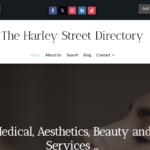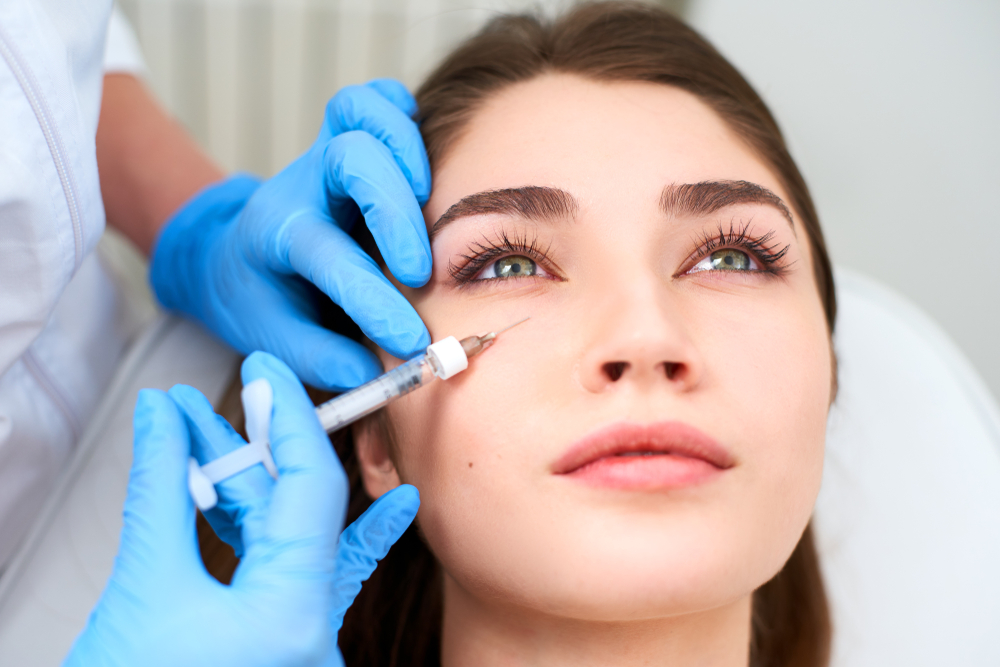The Harley Street Journal meets Manchester-based plastic surgeon Mr Gary Ross to discover how the cosmetic surgery industry has evolved this year.
THSJ: As the leader of a successful private clinic, would you say this year has been a positive one for the industry?
GARY: The increased awareness of the need for patient safety has dominated 2017 and has been a positive year for the industry. We are seeing more of a focus on patient empowerment and ensuring patients are fully informed to proceed or not which is imperative for the industry and most importantly for patients.
THSJ: What trends have you seen come to the forefront, and which procedures are on the downturn?
 GARY: Overall non surgical procedures have again increased as patients look for cosmetic treatments with less downtime. This has also led to patients looking for surgical procedures with shorter recovery times. Surgically the largest rise / trend has been in the mummy makeover procedure with patients requesting body and breast rejuvenation as a one stage procedure. There has been a downward trend in patients requesting buttock augmentation as compared to a year ago as patients consider more the pros and cons of the procedure. Breast augmentation remains the most requested surgical treatment although patients are currently looking for more subtle enhancements than a year ago.
GARY: Overall non surgical procedures have again increased as patients look for cosmetic treatments with less downtime. This has also led to patients looking for surgical procedures with shorter recovery times. Surgically the largest rise / trend has been in the mummy makeover procedure with patients requesting body and breast rejuvenation as a one stage procedure. There has been a downward trend in patients requesting buttock augmentation as compared to a year ago as patients consider more the pros and cons of the procedure. Breast augmentation remains the most requested surgical treatment although patients are currently looking for more subtle enhancements than a year ago.
THSJ: Have you seen any changes within the industry this year that you feel have been a step forward?
GARY: The updated General Medical Council recommendations in relation to consent have highlighted the need for clinicians to ensure patients are fully informed. The adaption of the certification scheme in cosmetic surgery in 2017 through the Royal College of Surgeons (RCS) has developed the speciality of cosmetic surgery. This will allow patients to choose a cosmetic surgeon that is able to fully inform patients regarding the available options so that they are fully empowered to proceed or not.
THSJ: Are we any further forward with regards to regulation within the cosmetic surgery and non-surgical treatment landscapes?
GARY: The Nuffield Council on Bioethics, an independent body that examines and reports on ethical issues in medicine has highlighted in 2017 the need for better regulation of the cosmetic industry and the affect of a negative body image on society in general. Health Education England continues to develop a way forward in the regulation of non surgical treatments and we look forward to further regulatory developments in non surgical treatments in 2018. The certification scheme in cosmetic surgery through the RCS in 2017 has been a major development for patients looking for surgical treatments and we hope that patients will take time to find those clinicians that have opted to be part of this regulatory framework.
THSJ: What has been your professional highlight of 2017?
GARY: Becoming the first cosmetic surgeon to be have completed the Royal College of Surgeons Cosmetic Surgery Certification Scheme was a great honour for me.
THSJ: Do you have any hopes with regards to how the cosmetic landscape may change next year?
GARY: I hope that the focus on patient empowerment continues in 2018 with clinicians focusing increasingly on patient’s interests.
THSJ: What cosmetic beauty trends do you think we’ll see in 2018, and are there any procedures you expect to become more popular?
GARY: In 2018 there will be an increasing trend towards individualised and personalised beauty with a shift away from the “one product/treatment fits all”. The shifting focus in skincare, make-up and fragrance brands towards individualised care will lead to a more holistic approach towards cosmetic beauty.
Profile: Mr Gary Ross
Mr Gary Ross is a plastic, reconstructive and aesthetic surgeon in the North West of England and offers an individualised range of plastic and cosmetic surgery treatments to enhance appearance. He consults and operates at the BMI Alexandra hospital in Cheshire, Manchester. A member of BAAPS and BAPRAS, he is a fully accredited plastic surgeon on the General Medical Council’s specialist register for plastic surgery. Mr Ross is also an Honorary Senior Lecturer University of Manchester and is dedicated to teaching, training and mentorship.
He has published extensively both nationally and internationally comprising over 100 peer reviewed articles and several book chapters (including face lifts, brow lifts, blepharoplasty plus more).
Mr Ross is actively involved in teaching both undergraduate Medical Students and postgraduate Plastic Surgical Trainees through his role as honorary senior clinical lecturer. He has also helped to develop the MSc in Skin Ageing through the University of Manchester and regularly teaches and trains in aesthetic medicine and surgery.

















